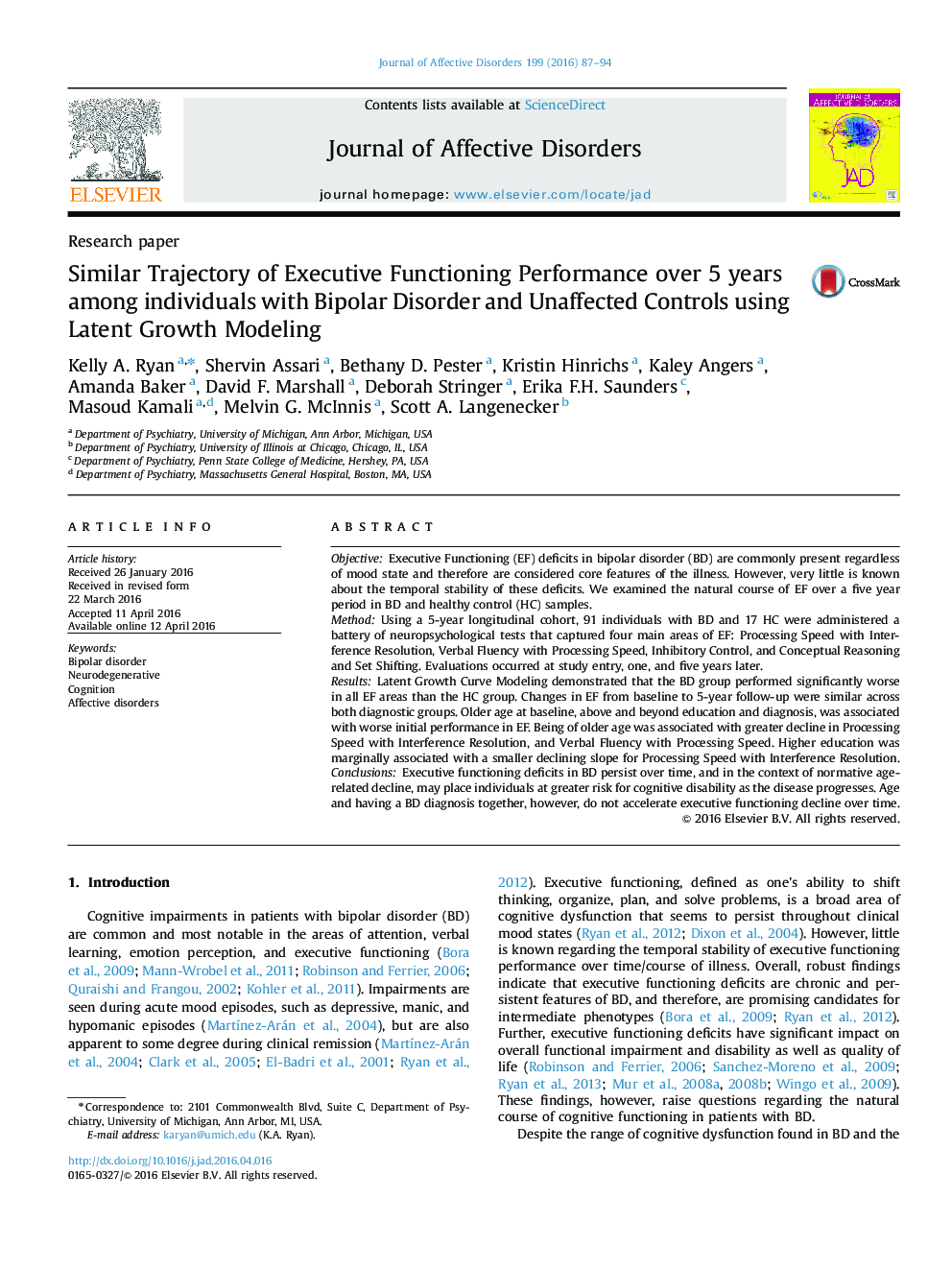| کد مقاله | کد نشریه | سال انتشار | مقاله انگلیسی | نسخه تمام متن |
|---|---|---|---|---|
| 6230146 | 1608126 | 2016 | 8 صفحه PDF | دانلود رایگان |
- Deficits in executive functioning among individuals with bipolar illness are present and are substantially worse compared to unaffected individuals.
- Executive functioning deficits are stable over time with a normal age-related decline on top of the baseline difficulties.
- There is equivalence of slope in executive functioning decline over five years in the bipolar and control samples - those with bipolar disorder start out and continue to show lower executive functioning performance over time.
- Older age, regardless of diagnosis, is related to greater decline over five years and higher education is related to smaller decline.
ObjectiveExecutive Functioning (EF) deficits in bipolar disorder (BD) are commonly present regardless of mood state and therefore are considered core features of the illness. However, very little is known about the temporal stability of these deficits. We examined the natural course of EF over a five year period in BD and healthy control (HC) samples.MethodUsing a 5-year longitudinal cohort, 91 individuals with BD and 17 HC were administered a battery of neuropsychological tests that captured four main areas of EF: Processing Speed with Interference Resolution, Verbal Fluency with Processing Speed, Inhibitory Control, and Conceptual Reasoning and Set Shifting. Evaluations occurred at study entry, one, and five years later.ResultsLatent Growth Curve Modeling demonstrated that the BD group performed significantly worse in all EF areas than the HC group. Changes in EF from baseline to 5-year follow-up were similar across both diagnostic groups. Older age at baseline, above and beyond education and diagnosis, was associated with worse initial performance in EF. Being of older age was associated with greater decline in Processing Speed with Interference Resolution, and Verbal Fluency with Processing Speed. Higher education was marginally associated with a smaller declining slope for Processing Speed with Interference Resolution.ConclusionsExecutive functioning deficits in BD persist over time, and in the context of normative age-related decline, may place individuals at greater risk for cognitive disability as the disease progresses. Age and having a BD diagnosis together, however, do not accelerate executive functioning decline over time.
Journal: Journal of Affective Disorders - Volume 199, 15 July 2016, Pages 87-94
